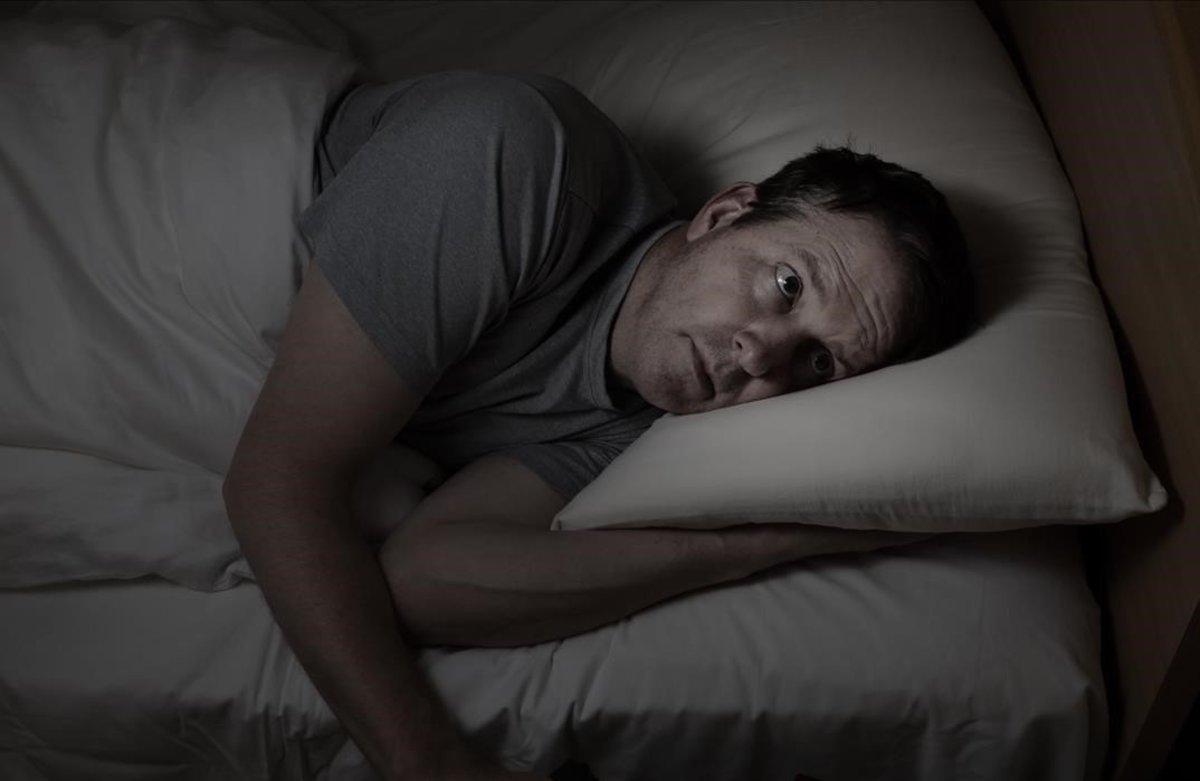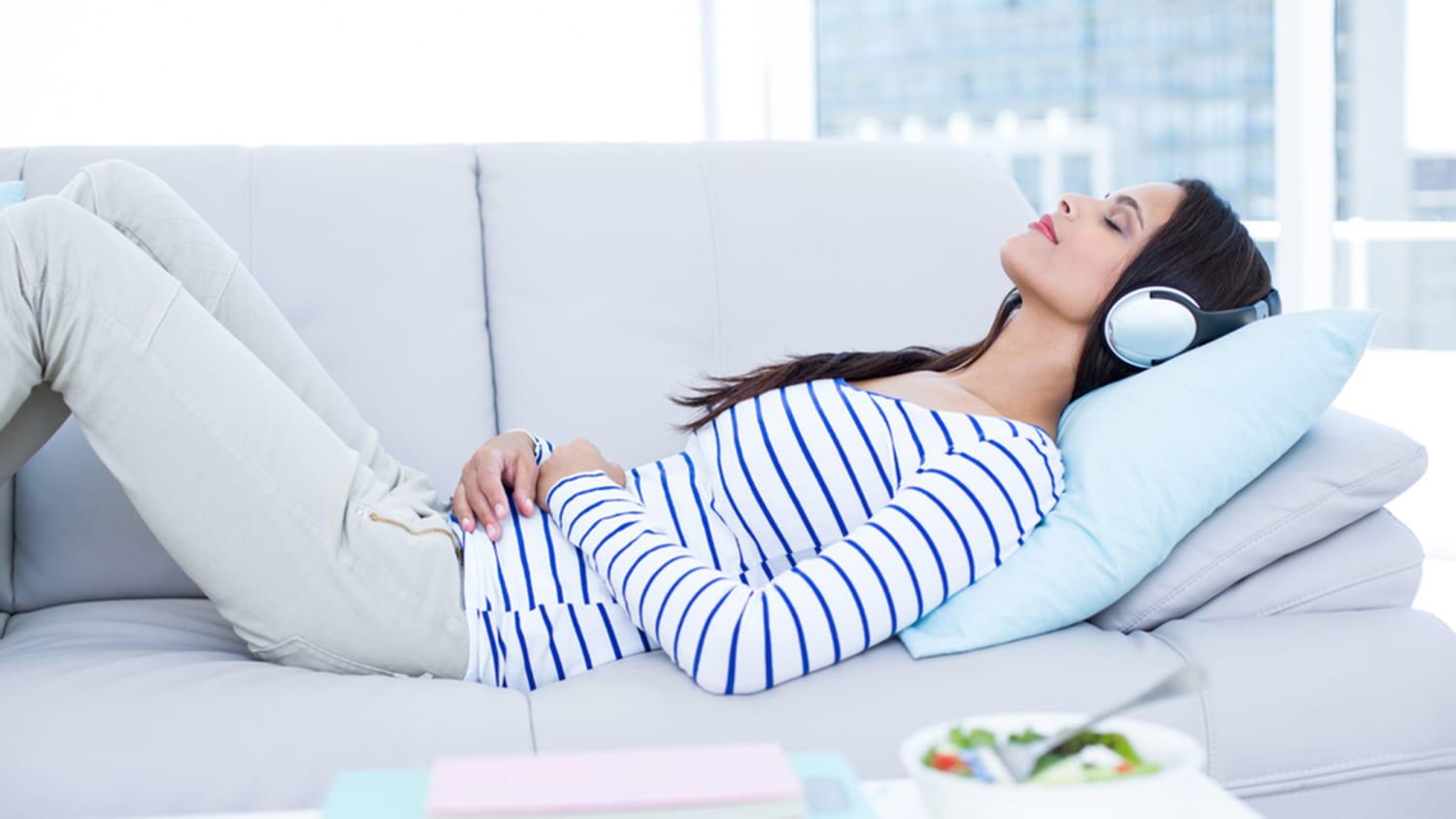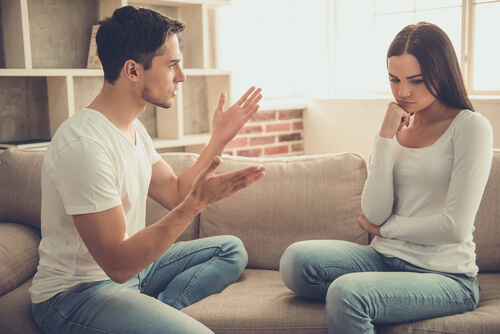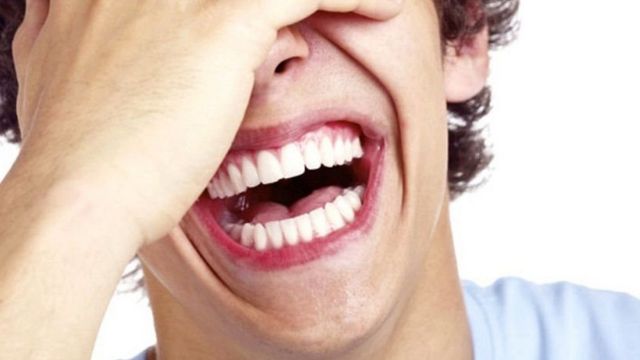10 Simple Tips to Sleep Better
An estimated 50-70 million US adults wish they could sleep better according to a recent CDC statistics. We are living in a modern life where we face acceleration and stressful situations almost daily. This leads to insomnia in hundreds of millions of people. Yet, sleep is essential to physical and mental well-being.
It is well known that being well-rested is a powerful antidote to stress. The same, chronic insomnia or persistent reduced sleep hours is detrimental to health and beauty. In short, to feel and look good we need to have good night sleep. But this is challenging to some.
Below are some tips, shown in numerous studies to help insomniacs like you sleep better:
Before Bedtime *
1. Avoid Vigorous Activities: Avoid strenuous activities at least two hours before you get to bed and gradually decrease your activity level as the evening progresses. This is even more important during the 60 minutes preceding your bedtime. Light and certain moderate activities may be okay.
According to Harvard School of Public Health, here are some examples of light, moderate and vigorous physical activities:
| Light | Moderate | Vigorous |
|
|
|
2. Adopt a Deadline of Vigorous Activities: In the evening, establish a specific time from which you put off all your works or strenuous activities for tomorrow. Do your best to remain focus, by respecting the time, until you overcome all sleep disorders. From this limit, you will only do pleasant and relaxing activities until you go to bed.
To relax your mind or keep it away from your work you can go to a church service, do relaxing or positive reading, have a great or loving family talk, have a relaxation session, listen to soft music, etc… These only can greatly help you sleep better.
3. Reduce Lighting in the Bedroom: numerous studies have shown that nighttime light exposure impair the production of melatonin, often called “sleep hormone” for its major role in controlling sleep and wake cycles. Therefore, being exposed to bright light is undoubtedly associated with sleeplessness in insomniacs. If possible, gradually dim the lights during the night, using dimmers or less powerful lamps.
Blue Light before bedtime is even more harmful for a restful sleep. Recently, a group of scientists have discovered that blue light affects levels of the sleep-inducing hormone melatonin more than any other wavelength. That is, watching smart TV right before going to bed may not be a good idea if you struggle with insomnia.
4. Drink Hours before Bedtime: to sleep better at night, it is to avoid drinking water or any other liquid before bedtime. Dinking in large amounts is even more problematic. This will cause urgent need to urinate in the middle of the night, thus prevent you from sleeping properly. Depending on the gravity of your sleep disorder you may not be able to fall back asleep after waking up. The wise thing to do is drinking more during the day because a hydrated body promotes quality sleep, and avoid doing so about 2 hours before going to bed.
This will cause urgent need to urinate in the middle of the night, thus prevent you from sleeping properly. Depending on the gravity of your sleep disorder you may not be able to fall back asleep after waking up. The wise thing to do is drinking more during the day because a hydrated body promotes quality sleep, and avoid doing so about 2 hours before going to bed.
Certain liquids and foods can irritate the bladder (Overactive bladder) and cause frequent urination day and night; you need to avoid them. Although their effects on the bladder tend to vary from person to person, the following foods are the most common reported:
- Onions
- Chocolate
- Coffee and Tea
- Processed Foods
- Tomato Products (acidic)
- Alcoholic Beverages
- Carbonated Beverages
- Watercress juice or eating fresh
- Oranges, Limes, and Lemons
- Cayenne pepper and all Spicy Foods
- Sweeteners, artificial sweeteners are even worse for your bladder and your health in general.
5. Avoid or Limit Stimulant Consumption: Eliminate or reduce stimulant consumption is crucial to have a good night sleep. They irritate the brain and body. In particular, make an effort to reduce or eliminate these stimulants 4 to 6 hours before you go to bed. Stimulants intensify the effects of certain chemicals in the brain, inducing a feeling or state of intense excitement and happiness (euphoria). When this feeling is over, however, the consumer tends to feel depressed or irritated. The brain remains on alert, which can lead to overactive brain (overactive mind), one of the main causes of insomnia.
Overactive mind causes the brain to buzz with more activity even at rest. That’s the reason the mind of most insomniacs do not shut down at night. According to a recent small study conducted on 28 people aged 50 and older by Dr. Rachel Salas, a neurologist and assistant professor at the Johns Hopkins Medical Institution, Baltimore, the brain of people who suffer from sleep disorders are busier than those of normal sleepers. “It’s like they’re constantly on, constantly being activated,” stated Dr. Salas.
7 Techniques to Calm an Overactive Mind in order to sleep better:
- Affirmation: use a positive affirmation whenever you feel your mind is overloaded. This one has worked for me: My mind is relaxed; I sleep 8 hours at night. Please see ‘Affirmations and Sleep’ for complete details.
- Write Pressing Thoughts down. If you feel overwhelmed with “to-do” things before bedtime, take a moment to write down these ideas that occupy your mind on a notebook for tomorrow. Put all pressing thoughts down on the notepad and trick your mind to believe the tasks are done or being done in order for it to get over them. In fact, you can dedicate a journal for this purpose.
- Focus on one Task at a Time: they say “dog has 4 feet but it cannot run on 4 roads at the same time.” Attempting to do more many things at a time affect your brain chemicals and activities. If you are not physically active (doing regular exercise), this cannot affect the quality of your sleep that much. But physically inactive people who use mostly their mind create a disproportional balance between their mental and physical activities. This can lead to not only sleep disorders but other serious mental problems.
In an article published on Harvard Health Publication, the Executive Editor, Heidi Godman, says that Physical and mental activities are both crucial for overall well-being, according to a study published recently in JAMA Internal Medicine.”
In a recent study of people in their 70 years old and older published in Neurology it is shown that the participants who exercised the most had the least brain shrinkage and fewer white matter brain lesions, which is associated with impaired balance, thinking, difficulty of relaxing (anxiety), and others. However, participants who engaged mostly in mental activities (no or less physical activities) had more brain shrinkage and white matter brain lesions.
However, participants who engaged mostly in mental activities (no or less physical activities) had more brain shrinkage and white matter brain lesions.
4. Use Meditation: The bible says Jesus spent most of his time, nights and days, preaching and working miracles. The very say bible also says he was constantly meditating. One beneficiary of this practice states, “Regular meditation is the best gift you can offer to your brain.” It helps the muscles and the brain to relax, thus improve sleep in insomniacs.
A simple technique to help you have deep mediation is to focus on your breathing. Lay down (on the back preferably) or sit in a quiet place where you will not be disturbed. Close your eyes, and pay attention only to your breathing. Count slowly to eight as you breathe in and to eight as you breathe out. At the beginning your mind will tend to wander off, but just bring it back to your breathing. Within a few minutes of each session your mind will slow down and relax.
5. Take A Bath or Show to Calm Your Mind: It may sound too simple to be true, but taking a nice shower can really help to calm down your mind and thus help you sleep better. While taking the bath picture everything you are worried are being sucked down the drain, as if you are getting rid of them. The simplest things in life tend to be more powerful; some people confirm it works for them.
Cold shower is recommended (if your body can tolerate it), but at least 2 hours before going to bed. In addition to relaxation and sleep, cold showers help boost the immune system, improve blood circulation, increase metabolic rate (Fat Loss), boost in testosterone levels (therefore good for erection), beautify the skin and hair, decrease inflammation, and increase stress tolerance (therefore make you tougher mentally).
6. Be Grateful. Being grateful helps you focus on the positive aspects of life instead of the negatives. Sometimes, the simplest and best way to stop your mind from driving you crazy is to count the blessings rather than focusing on the disappointments of life. Gratitude is highly important not only for your mental health but also physical, social and financially. “It is the key to prosperity”, one says. A whole chapter is dedicated for gratitude; please read ‘Gratitude and Sleep’.
7. Listen to Soothing Music: Listening to a soft music before bedtime can really do a great difference in your struggle to have a restful sleep. According to a 2005 study, older people who listened to soft tunes for about 45 minutes before going to bed experienced 35 percent improvement in their sleep problems.
Other researchers have concluded the same results in a meta-analysis conducted to evaluate how music can alleviate acute and chronic sleep disorders. 557 adult individuals who suffered from sleep disorders participated in the analysis. In each study, participants were randomly recommended to a form of insomnia treatment, in which they passively listened to relaxing music. At the end of the study the scientist measured the sleep quality of all participants. Amazingly, the researchers found music caused significant improvements in sleep quality in all 557 participants.
6. Avoid Eating Late At Night: Avoid eating heavily before you go to bed, whatever the food … the more your stomach is loaded the more difficult it is for your brain to relax. There are closed interactions between the brain and digestive system.
According to the National Academy of Sciences, “when food enters the mouth and passes through the digestive system, it sends a multitude of interacting signals to the brain, through peptides released by the small intestine, loaded with sensory, nutritive, and other information.” This causes it to be more active in response to the signals from the stomach. In people who have digestive disorders the task of the brain is even more difficult.
For some people, the desire to eat late night is a real problem. It can be a habit difficult to quit. However, it must be overcome. Sleep requires a relatively low internal temperature; yet, digestion increases body temperature. If dinner is very abundant, this phenomenon is more troubling and more prolonged, which of course, could jeopardize night sleeping. For the same reason, even if you dine reasonably, it is best to wait at least an hour and a half after eating to go to bed. No question of going to bed after dinner if you are an insomniac.
The same, contrary to what many think, it is not good to sleep with a completely empty stomach. By doing so, you risk of experiencing stomach cramps or a craving in the middle of the night. Experiments in animals have shown that night fasting can completely eliminate sleep. Studies also show in pregnant women and elderly it can cause severe discomfort (fall, loss of consciousness…) related to hypoglycemia, a dangerous insulin reaction which causes blood sugar to decrease below normal levels.
7. Avoid Stressful News: It is very important to avoid stressful information before bedtime. Bad news sources, such as late-night television news bulletin and very negative people, are the causes of sleep disorders in a great majority of people. Let’s face it, if you are a human being how can you have a restful sleep after watching on the news a criminal kidnaps, tortures and kills an innocent child, or a police officer fatally shoots an innocent black teenager for no good reason?
A young man who has sleep problem stayed awake all night long after receiving a bad news. During a soccer game, a grown man, who was not in the game, attacked and punched his nephew several times. It was already late when he received the news. Instead of waiting for tomorrow, he confronted the aggressor the very same night to find out the reason of the aggression and possibly reach a positive conclusion. But things turned so ugly that the two almost fought. He went back home angrier with a thirst of revenge. The results? He barely slept a couple hours that night and woke up with headache.
Instead of waiting for tomorrow, he confronted the aggressor the very same night to find out the reason of the aggression and possibly reach a positive conclusion. But things turned so ugly that the two almost fought. He went back home angrier with a thirst of revenge. The results? He barely slept a couple hours that night and woke up with headache.
Conversely, have a great family or friendly conversation and fun which will have the effect of cutting the link with psychological concerns of the day. It also show in many studies that spending a good time in church, praising and worshiping, before going to bed also improve sleep, boost the immune system, and reduce premature aging.
Note: this is praising and worshiping; this is not giving huge sum of money to pastor X to be blessed or receive the favor of God.
8. Do Easy or Simple Tasks Late Evening: depending on your lifestyle or work activity, you might need to do certain works in the evening. If it is the case, do the least difficult ones with a pleasant attitude; do not exercise too much effort on your brain.
Here are 5 things to do before bed which can help you have a deep and restful sleep and wake up happy in the morning:
- Take a few minute for gratitude practice: being grateful can do miracle. Many studies show that gratitude reduces stress and anxiety, and helps people remain optimistic even in dire times. It is said a man heals from advanced kidney failure by practicing gratitude throughout the day for all small things in his life. Please see Gratitude and Sleep.
- Write Down Things You Want to Remember. Before you go to sleep or even while you are in bed an important idea can come to your mind. Instead of remaining focus in order to remember it, it is better that you write it down on a small notepad. Writing down your to-dos or reminders sends a signal to your brain telling it to stop thinking about them.
- Do Something Relaxing. From listening to a soft music to read a pleasant book, there plenty thing relaxing things you can do. In addition, you can drink your favorite tea (it must be no-caffeine) to relax your mind. Please read Top 10 Best Herbal Teas for Sleep.
- Have a Satisfying Sex. Yes, having a great sexual intercourse helps sleep better. This is even more effective for women. It shows single women who are not sexually active (but would love to) are most likely to experience sleep disorders than women who are happily married and sexually pleased. Certain sex positions work better. This is a huge topic; a whole chapter is dedicated to it. Please see Sex and Sleep.
- Short Walk. According to a recent study published in the Proceedings of the National Academy of Sciences by a group of Stanford scientists, a short walk in nature have tremendous health benefits, including deep sleep throughout the night. If you do not live in a big city, go for a short walk in the evening, leaving every negative things of the day behind. If you can go with someone you love and have a sweet talk during the walking that would be great. If you are all by yourself, just empty your mind, enjoy the fresh air and the natural sound around you.
9. Practice Relaxation and Laughter: It costs nothing to do deep relaxation but it is worth a lot in terms of health benefits. By practicing good relaxation techniques daily it helps activate your body’s natural relaxation response, which reduces stress, boost your energy and improve your mood.
Some good relaxation techniques that are proven to work include praise and worship (to God), deep breathing, meditation, rhythmic exercise, and others. You can also decompress by placing a warm heat wrap around your neck and shoulders for 10 minutes.
The say laughter is a good medicine; it is true. Research shows laughter reduces cortisol (stress hormone) in the body, boosts the production of chemicals called endorphins by the pituitary gland in the brain, which help improve mood, relieve pain and induce feelings of pleasure or euphoria.  Laughter therapy is not and cannot be patented; it is free. Instead of going to bed sour, laugh, laugh, laugh out loudly (LOL). It is also antiaging in addition to help you sleep better.
Laughter therapy is not and cannot be patented; it is free. Instead of going to bed sour, laugh, laugh, laugh out loudly (LOL). It is also antiaging in addition to help you sleep better.
10. Establish a Routine: Adopting a nightly ritual preparation can be very helpful. By repeating several times the same gestures, you will create a habit that indicates your mind it is sleep time; it will make your fall asleep faster. The ritual can be 30 minutes of listening to classical music. There are plenty of them on YouTube. In fact, some of them are licensed under the Creative Commons; you can download them on your phone or computer to be available for your any time you want.



